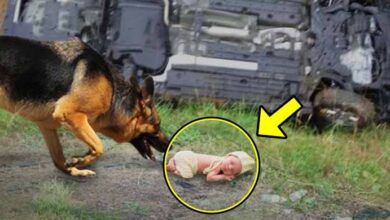My Daughter Suddenly Started Stealing from Us and I Was Left Heartbroken When I Found Out the Reason

When a mother noticed money vanishing each time her daughter went out, she uncovered a heartbreaking truth behind the thefts, revealing a tale of teenage rebellion turned into an act of clandestine compassion for a friend in need.
As a mother, I’ve ridden the rollercoaster of raising a teenager, navigating the ups and downs of mood swings, boundary testing, and the quest for independence. My daughter, Emma, is no exception.

Recently, however, our family dynamics have shifted in a way that’s left me grappling with a mix of emotions. Emma, once a sweet and open child, has morphed into a typical teenager, asserting her independence and, unfortunately, adopting some less-than-desirable behaviors.
The first signs were innocuous. Emma’s room became her fortress, her phone an extension of her hand, and her responses to us were peppered with eye rolls and heavy sighs. But then, the small, tangible things started disappearing. A pack of pens here, a notebook there—items from our own home began to vanish, only to be found tucked away in the depths of her backpack.

The change was gradual, and I tried to dismiss it as typical teenage behavior. But denial is a powerful force. It wasn’t until a recent incident that I was jolted into facing the reality of our situation.
Last Wednesday, my husband, Mike, and I attended a friend’s birthday celebration. It was an all-day affair, leaving Emma to her own devices. We returned late, tired but happy, only for me to notice that my wallet was not where I had left it in my purse.
Upon closer inspection, I realized that money was missing. At first, I rationalized it away, thinking I must have misplaced it or spent more than I remembered. The rush of getting ready for the party that morning clouded my recollection.

However, a niggling doubt lodged itself in my mind, refusing to be ignored. I started paying closer attention and noticed a disturbing pattern: every time Emma went out with her friends, a little more money disappeared. To test my growing suspicion, I left $20 on my dresser, a deliberate bait. Sure enough, when she returned home, the money was gone.
This revelation shattered my heart. Emma had always been provided with enough money for her needs and small wants. The thought of her stealing, especially from us, was a piercing blow. What could drive my daughter, my own flesh and blood, to such actions?

Was it sheer teenage rebellion, or was there something deeper, more troubling at play? These questions haunted me, propelling me towards a decision that would unveil a reality far removed from what I had imagined.
In the quiet stillness of a Saturday morning, with my heart pounding in my chest, I made a decision that would alter my understanding of my daughter, Emma. The pattern of missing money had become too regular, too coincidental with her outings. Driven by a mixture of concern and desperation, I decided to follow her. I needed to see with my own eyes what was happening, to understand why my daughter was stealing from us.
I watched from a distance as Emma, unaware of my pursuit, made her way through our neighborhood. Her steps were purposeful, her demeanor tense. She finally stopped at a house at the end of a cul-de-sac, an almost dilapidated structure that seemed out of place in our well-kept community. My heart raced as I saw her knock softly before slipping inside.
Curiosity and fear battled within me as I approached the house. Peering through a window, I saw a scene that will forever be etched in my memory. There, in a sparse, poorly lit room, was Emma, handing over the money to a girl I recognized from her school, Mia. The room’s bareness, the patched-up furniture, and the worn-out clothes hanging on a line spoke volumes of the life Mia and her family were leading.

Tears blurred my vision as I realized the gravity of the situation. My daughter wasn’t stealing out of malice or selfishness; she was trying to help her friend. Overwhelmed by a mix of emotions, I knocked on the door. The girls were startled, their eyes wide with fear, but their expression softened when they saw it was me.
The conversation that followed was heart-wrenching. Mia, with a voice small and weary, explained her family’s dire situation. Her parents, battling with unemployment and health issues, struggled to provide even the basic necessities. Emma, seeing her friend in need, felt compelled to help in the only way she thought she could.

As I listened, my initial feelings of betrayal and anger dissolved, replaced by a profound sadness for what Mia was enduring and a complex pride in Emma’s compassion. It was a pivotal moment, one that made me reevaluate not only my daughter’s actions but also our family’s role in the broader community. Emma’s misguided method of helping her friend was wrong, but her intent spoke to a level of empathy and maturity that I hadn’t fully appreciated before.
The reality of Mia’s situation and the depth of my daughter’s response to it reshaped my understanding of our family’s values and responsibilities. We needed to address Emma’s actions, but more importantly, we had to find a way to help Mia and her family, rooted in respect and genuine support.

The journey home with Emma was quiet, each of us lost in our own thoughts. Once we arrived, we sat down as a family, including my husband Mike, to discuss the day’s revelations and determine how to move forward. The gravity of the situation had sobered us all, and we knew that addressing it would require more than just a discussion about right and wrong.
Firstly, we made it clear to Emma that stealing, no matter the intention, was not acceptable. However, we also expressed our understanding of her desire to help Mia and commended her empathy, while emphasizing the need to find more appropriate ways to support her friend.

Together, we brainstormed ideas and decided to reach out to local community services that could offer assistance to Mia’s family. We also agreed to involve Mia’s family in our discussions to ensure they felt supported and respected throughout the process.
Our family’s approach became one of proactive compassion. We helped Mia’s family connect with local food banks, counseling services, and employment agencies. Emma, realizing the importance of her actions, volunteered to tutor Mia and help her with schoolwork, strengthening their bond and providing academic support.

This experience has been a profound learning curve for our family. It highlighted the value of understanding the underlying reasons behind actions, especially those that initially seem misguided or harmful. We learned the importance of addressing issues as a community and the difference empathy and proactive support can make in the lives of others.




